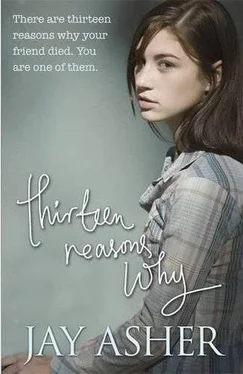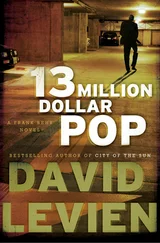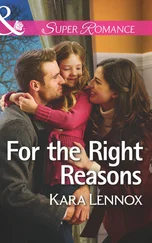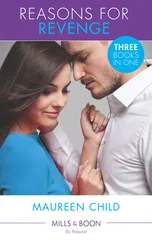I needed a break…from myself.
I slide my hand from under my chin to the back of my neck. The bottom strands of my hair are drenched in sweat.
But I loved poetry. I missed it. And one day, after several weeks, I decided to go back to it. I decided to use poetry to make myself happy.
Happy poems. Bright and happy sunshiny poems. Happy, happy, happy. Like the two women pictured on the flyer at Monet’s.
They taught a free course called Poetry: To Love Life. They promised to teach not only how to love poetry, but through poetry, how to better love ourselves.
Sign me up!
D-7 on your map. The community room at the public library.
It’s too dark to go there now.
The poetry class began at the same time the last bell rang at school, so I’d race over there to try and make it without being too late. But even when I was late, everyone seemed happy to have me there-to provide the “feminine teen perspective” they called it.
Looking around, I see that I’m the only one left in Rosie’s. They don’t close for another thirty minutes. And even though I’m not eating or drinking anymore, the man behind the counter hasn’t asked me to leave. So I’ll stay.
Imagine ten or twelve orange chairs arranged in a circle, with the happy women from the flyer sitting at opposite ends. Only problem was, from day one, they weren’t happy. Someone, whoever made that flyer, must have digitally turned their frowns upside down.
They wrote about death. About the evilness of men. About the destruction of-and I quote-“the greenish, bluish orb with wisps of white.”
Seriously, that’s how they described it. They went on to call Earth a knocked-up gaseous alien needing an abortion.
Another reason I hate poetry. Who says “orb” instead of “ball” or “sphere?”
“Expose yourself,” they said. “Let us see your deepest and your darkest.”
My deepest and my darkest? What are you, my gynecologist?
Hannah.
So many times I wanted to raise my hand and say, “Um, so, when do we get to the happy stuff? The stuff about loving life? You know, Poetry: To Love Life? That’s what the flyer said. That’s why I’m here.”
In the end, I only made it through three of those poetry groups. But something did come of it. Something good?
No.
Hmm…I wonder.
See, someone else was in that group. Another high schooler with a perspective adored by the older poets. Who was it? The editor of our school’s very own Lost-N-Found Gazette.
Ryan Shaver.
You know who I’m talking about. And I’m sure you, Mr. Editor, can’t wait for me to say your name out loud.
So here you go, Ryan Shaver. The truth shall set you free.
The motto of the Lost-N-Found.
You’ve known this for a while, Ryan. I’m sure of it. At the first mention of poetry, you knew this one was about you. You had to. Though I’m sure you must have thought, This can’t be why I’m on the tapes. It wasn’t a big deal.
The poem from school. God, it was hers.
Remember, this is one tight, well-connected, emotional ball I’m constructing here.
I close my eyes tight, covering my eyes with my hand.
I crush my teeth together, jaw muscles burning, to keep from screaming. Or crying. I don’t want her to read it. I don’t want to hear that poem in her voice.
Would you like to hear the last poem I wrote before quitting poetry? Before quitting poetry for good?
No?
Fine. But you’ve already read it. It’s very popular at our school.
I allow my eyelids, my jaw, to relax.
The poem. We discussed it in English. We read it aloud many times.
And Hannah was there for it all.
Some of you may recall it now. Not word for word, but you know what I’m talking about. The Lost-N-Found Gazette. Ryan’s semiannual collection of items found lying around campus.
Like a love letter tossed under a desk, never discovered by its intended love. If Ryan found it, he’d scratch out the give-away names and scan it for use in an upcoming gazette.
Photographs that fell out of binders…he scanned them, too.
History notes covered in doodles by an extremely bored student…he scanned them.
Some people may wonder how Ryan found so many interesting items to scan. Did he really find them at all? Or did he steal them? I asked him that very question after one of our poetry meetings. And he swore that everything he printed was found purely by chance.
Sometimes, he admitted, people did slip items they found into his locker. Those, he said, he couldn’t vouch for one hundred percent. That’s why he scratched out names and phone numbers. And photographs, as a rule, couldn’t be too embarrassing.
He’d gather five or six pages of good, quirky material and print up fifty copies. Then he’d staple them together and drop them off at random places throughout school. Restrooms. Locker rooms. On the track.
“Never in the same spot,” he told me. He thought it was fitting for people to stumble across his magazine of stumbled across items.
But guess what? My poem? He stole it.
I pull a napkin out of the holder and wipe the abrasive paper across my eyes.
Each week, after our poetry group, Ryan and I would sit on the library steps and talk. That first week, we simply laughed about the poems the other people had written and read. We laughed about how depressing they all were.
“Wasn’t this supposed to make us happy?” he asked. Apparently, he signed up for the same reason as me.
I look up. The man behind the counter tugs on the strings of a heavy trash bag. It’s closing time.
“Can I get a glass of water?” I ask.
After the second week of class, we sat on those library steps and read some of our own poems to each other. Poems we’d written at different points in our lives.
He looks at my eyes, at the skin rubbed raw by the napkin.
But only happy poems. Poems about loving life. Poems we would never read to that depression-loving group of miserable poets inside.
And, as poets never do, we explained ourselves. Line for line.
The third week, we took the biggest chance of all and handed each other our entire notebooks of poetry.
He pushes a glass of ice water in front of me. Except for that glass and the napkin dispensers, the entire length of the counter is empty.
Wow! That took a lot of courage. For me, definitely. I’m sure for you, too, Ryan. And for the next two hours, with the sun going down, we sat on those concrete steps, turning pages.
His handwriting was horrible, so it took me a bit longer to read through his poems. But they were amazing. Much deeper than any of mine.
His stuff sounded like real poetry. Professional poetry. And someday, I’m sure of it, kids will be forced to analyze his poems out of a textbook.
I touch the cold glass, wrapping my fingers around it.
Of course, I had no idea what his poems meant. Not exactly. But I felt the emotions precisely. They were absolutely beautiful. And I felt almost ashamed at what he must have been thinking as he went through my notebook. Because reading through his, I realized how little time I’d spent on mine. I should have taken the time to choose better words. More emotional words.
But one of my poems grabbed him. And he wanted to know more about it…like when I wrote it.
But I didn’t tell him.
I don’t drink the water. I watch a single drop slide down the glass and bump against my finger.
I wrote it the same day a group of students got angry that someone had the nerve to ask for help regarding suicide. Remember why they got upset? Because whoever wrote the note didn’t sign her name.
How insensitive.
It was anonymous. Just like the poem that appeared in the Lost-N-Found.
So Ryan wanted to know why I wrote the poem.
Читать дальше












